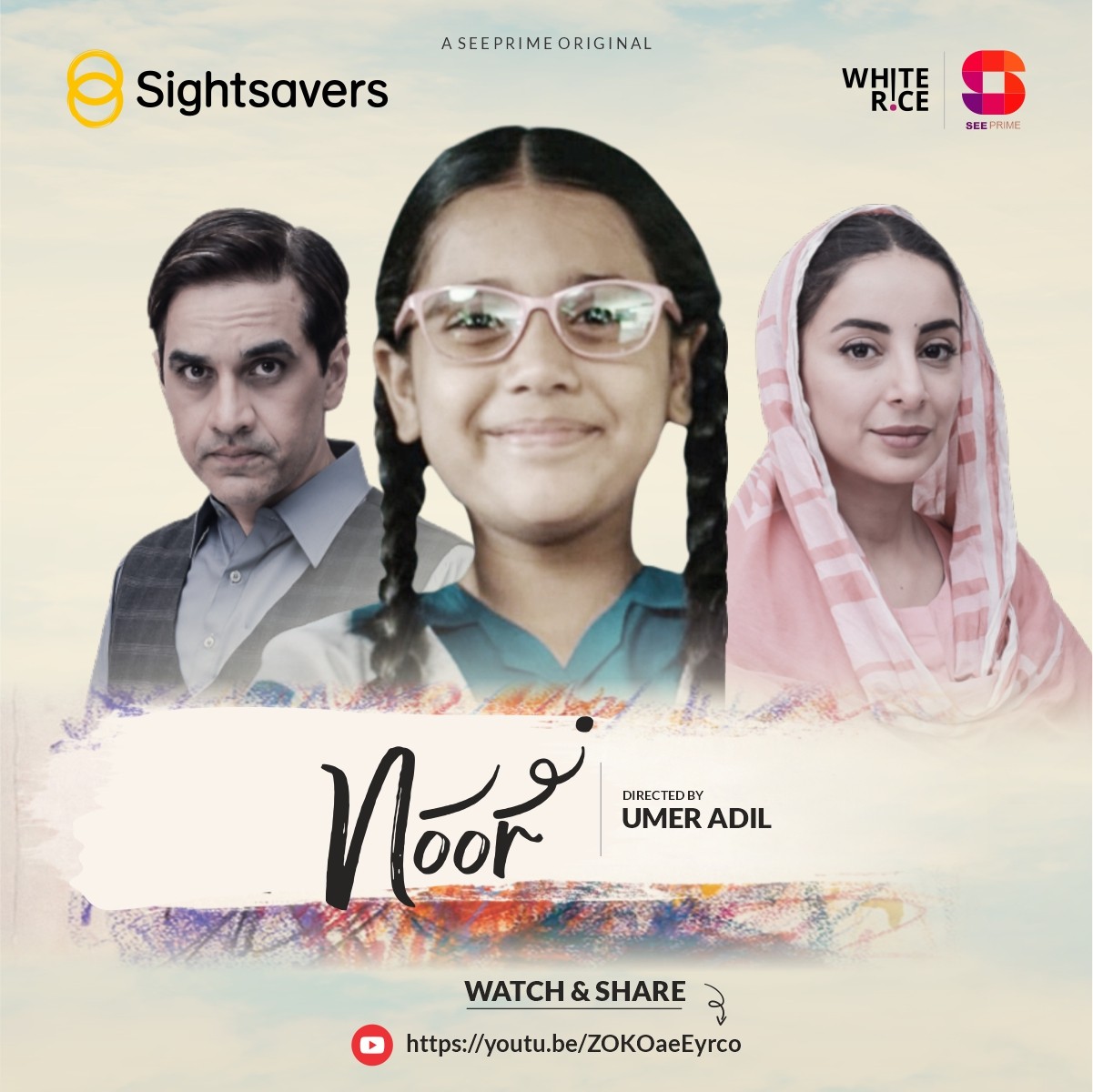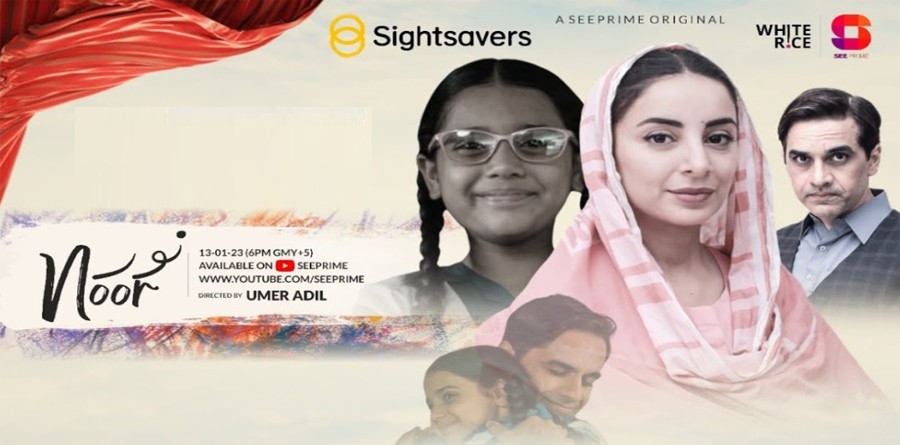Film “Noor” Has Been Produced BY Sightsavers To Bring Awareness About Vision Impairment In Children.
Sightsavers is an international non-governmental organisation that works with partners in developing countries to treat and prevent avoidable blindness and promote equality for people with visual impairments and other disabilities. It is based in Haywards Heath in the United Kingdom, with branches in Sweden, Norway, India, Italy, the Republic of Ireland, the United Arab Emirates, and the US. The charity was founded in 1950 by Sir John Wilson and was originally called the British Empire Society for the Blind, then the Royal Commonwealth Society for the Blind. Its patron is Princess Alexandra. Between 1950 and 2018, Sightsavers distributed over 1 billion treatments to prevent potentially debilitating diseases and supported 7.3 million sight-restoring cataract operations.

Sightsavers recently produced a telefilm Noor with the purpose to bring awareness of vision impairment caused by uncorrected refractive errors (URE) in children. Noor, a film starring Sarwat Gillani and Umair Rana has been released by the international development organization Sightsavers during a ceremony held in Islamabad.

According to a recent study, more than four million children in Pakistan are affected by (URE) Uncorrected Refractive Error, and due to this short and long-sightedness also impacts child proper development, and ultimately lead to children missing school. With over 2 million children already locked out of learning due to recent devastating floods. The impact of poor eye health will only increase this number if we don’t act now.
Noor has been released in collaboration with SeePrime and white rice and is a movie directed by Umer Adil, entire film story moves around a little schoolgirl who trying with poor eye vision and struggles to perform daily life activities. It also focuses on the need to challenge societal stigmas associated with wearing glasses.
Parliamentary Secretary, Ministry of Education and Professional Training Zeb Jaffar has been invited as Chief Guest at the opening ceremony and he admires the Sightsavers’ positive efforts to rise the vital issue of poor eye health and connect it with effective education and also said that government should take some serious action to facilitate the eye medical health in Pakistan.
Munazza Gillani, Country Director Pakistan at Sightsavers, said: “Social drama films do more than raise awareness, they draw you into the story and lives of the characters. They can soften and dissolve barriers and prejudices, creating space for change to take place in the real world. Good eye health equals opportunity and has a ripple effect on children, improving education, well-being, economics, and health outcomes. We hope that this film will encourage the government, parents, and teachers to recognize the importance of eye health and play their role in managing and addressing unaddressed refractive errors.”
lead actor and Ambassador of Special Olympics Pakistan Sarwat Gilani said that “she hopes that the project will help build a better and brighter future and that coming together for this cause will help address the stigma many people face around wearing glasses.”
The premiere event was attended and appreciated by development, education, and health sector practitioners, diplomats, public sector officials, school principals, and the film cast. It has also been launched digitally on SeePrime and Sightsaver’s social media channels. The audience liked the film and considered this concept of using film and emotions to promote awareness, a great step in the right direction.
Being a startup project in Noor, Sightsavers will also aim to train the school teachers in basic vision health screening and will also provide the services like eye testing, glasses, and basic surgery. The film can be enjoyed on SeePrime’s youtube channel. It complements Sightsavers’ ‘Eye Health Equals’ campaign which calls on governments, organizations, donors, and communities to ensure eye health is prioritized.














Leave a Reply